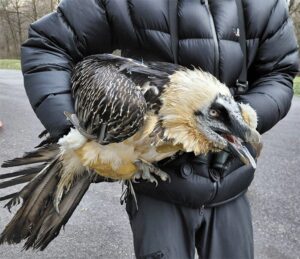In a handful of obscure Slovenian caves, a blind beetle crawls.
And like numerous other species on the planet right now, it’s spiraling toward extinction for reasons it will never understand.
Most threatened species face existential pressures related to nature itself — climate and environmental hazards. The disastrously sought-after Anophthalmus hitleri is a noteworthy exception.
Enthusiastic neo-Nazi trade has forced the cave beetle to the brink of extinction, according to The Washington Post. Some specimens have reportedly fetched $1,400. Multiple outlets have condemned the trade as poaching. (The IUCN does not list A. hitleri on its list of threatened or endangered species.)
The scientific community now faces an awkward choice. A bid to rename the beetle could save the species, many point out. But consensus must accept the decision — and if it does, it would smear the principles of scientific nomenclature.
“It’s an innocent insect,” a Canadian anthropologist told the Economist. “Why not end this illegal trade by changing its name?”
Because, countered a research associate at Portugal’s University of Porto, crumpling under the pressure of opinion could harm the study of biodiversity.
“Several hundred thousand accepted scientific names could potentially be challenged,” he said in a paper. That could sow confusion, and would undermine the duty of the International Commission on Zoological Nomenclature (ICZN), which regulates species names with regard to “stability without constraining taxonomic judgment.”
How the Hitler beetle got its name
If that judgment fell, it would fall on an Austrian train engineer and sometime entomologist named Oskar Scheibel. Scheibel became the first to describe the beetle in 1937, thus earning the right to name it.
Scheibel was a Nazi supporter. He dedicated his initial paper describing the insect “to the Reich Chancellor Adolf Hitler as an expression of…veneration.”
Scheibel, of course, is far from the only biologist with problematic morals. And because naming rights go to the discoverer, his is just the latest node in a nomenclature debate that continues to roil.
The Entomological Society of America (ESA) recently removed the word “gypsy” (a slur for nomadic Romadi people) from several species names.

Lymantria dispar, formerly the ‘gypsy moth.’ Photo: Flickr
“This is a moral, necessary, and long-overdue change,” Margareta Matache, a Roma rights activist and Harvard University student, told ScienceNews. She called it a “small yet historic” step, saying Roma people “have been denied humanity or depicted as less than human.”
As the internet crowds with opinions, A. hitleri’s fate remains insecure.






